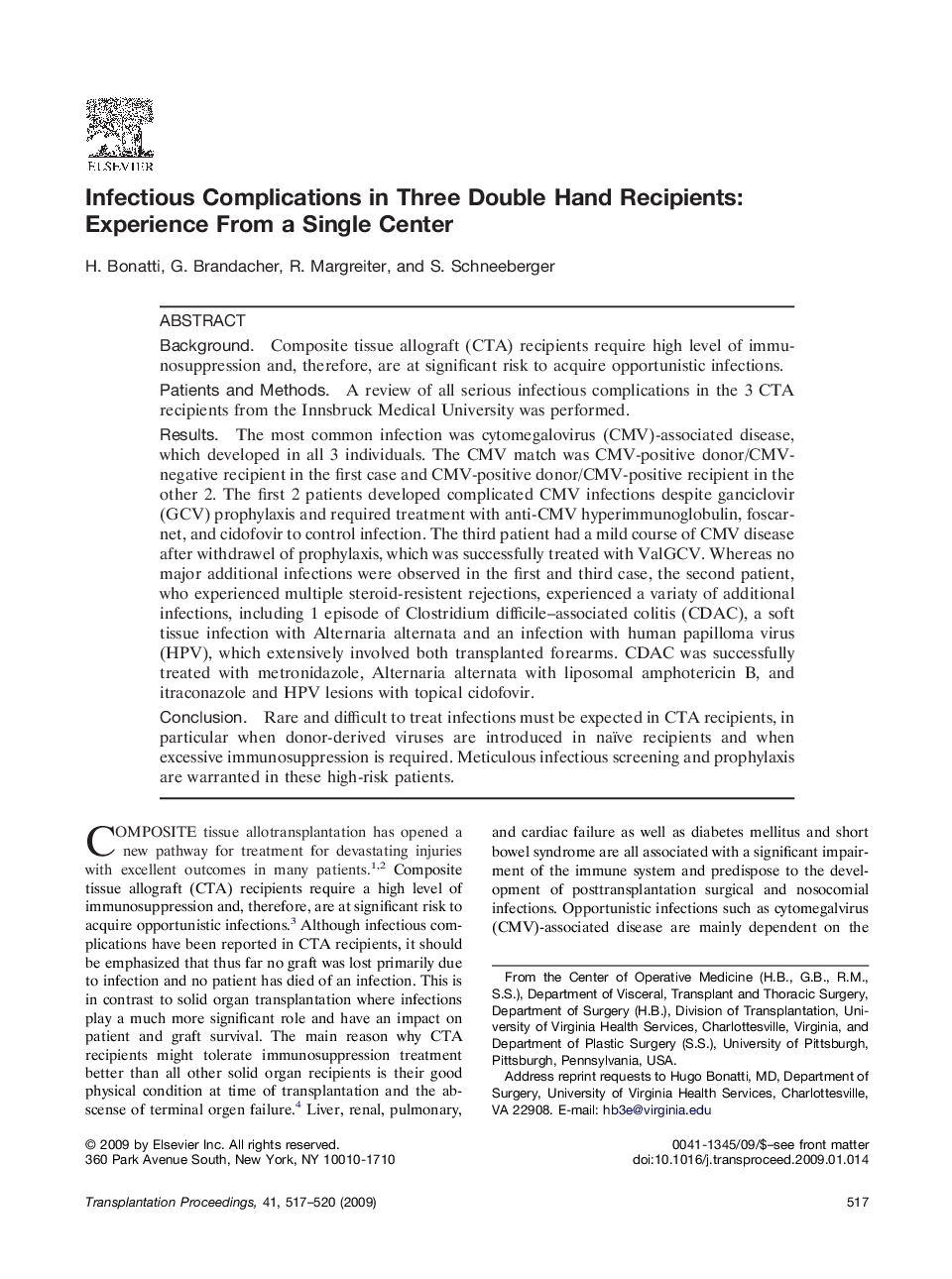| Article ID | Journal | Published Year | Pages | File Type |
|---|---|---|---|---|
| 4259509 | Transplantation Proceedings | 2009 | 4 Pages |
BackgroundComposite tissue allograft (CTA) recipients require high level of immunosuppression and, therefore, are at significant risk to acquire opportunistic infections.Patients and MethodsA review of all serious infectious complications in the 3 CTA recipients from the Innsbruck Medical University was performed.ResultsThe most common infection was cytomegalovirus (CMV)-associated disease, which developed in all 3 individuals. The CMV match was CMV-positive donor/CMV-negative recipient in the first case and CMV-positive donor/CMV-positive recipient in the other 2. The first 2 patients developed complicated CMV infections despite ganciclovir (GCV) prophylaxis and required treatment with anti-CMV hyperimmunoglobulin, foscarnet, and cidofovir to control infection. The third patient had a mild course of CMV disease after withdrawel of prophylaxis, which was successfully treated with ValGCV. Whereas no major additional infections were observed in the first and third case, the second patient, who experienced multiple steroid-resistent rejections, experienced a variaty of additional infections, including 1 episode of Clostridium difficile–associated colitis (CDAC), a soft tissue infection with Alternaria alternata and an infection with human papilloma virus (HPV), which extensively involved both transplanted forearms. CDAC was successfully treated with metronidazole, Alternaria alternata with liposomal amphotericin B, and itraconazole and HPV lesions with topical cidofovir.ConclusionRare and difficult to treat infections must be expected in CTA recipients, in particular when donor-derived viruses are introduced in naïve recipients and when excessive immunosuppression is required. Meticulous infectious screening and prophylaxis are warranted in these high-risk patients.
